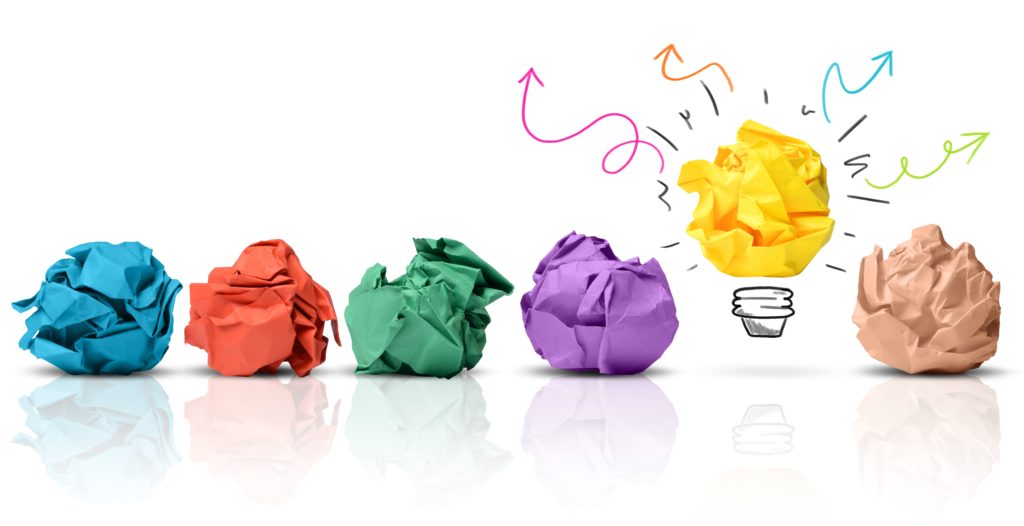Quick Hits
Daily brief research updates from the cognitive sciences

Can you learn creativity? Well, you can learn anything, and you can certainly learn to be more creative. But the big question is do those people high in creativity have brains that function differently? There has been a bunch of research that has promoted this idea that those high in creativity do have brains that function differently but there is still a lot to learn.
To help answer this question researchers at UCLA put exceptionally creative visual artists and scientists, known as “Big C” types (selected by a panel of experts and objective criteria) – into brain scanners to try to see what was happening in their brains during creative tasks.
And what did they find?
They found that, yes, creative people do use their brains differently and in an interesting way. When the brain processes information and engages in tasks the brain tends to send all signals through standard pathways and these are connected through various “hubs” such as a region called the thalamus. However, in creative people’s brains this seems to happen differently. They connect regions of the brains without going through these hubs.
This therefore suggests that this is an inborn process – I, for example, have no idea how to connect ideas without using my thalamus!
But this piece of research was also interesting because they compared different population groups specifically visual arts and sciences but also compared this to an IQ-matched comparison group to make sure this is not just a signature of intelligence. And they also found something else interesting.
They found that these Big C creatives had more efficient local brain connections at rest but when they ramped up on creativity tasks, they used the pattern above using less efficient but more divergent routes. So, this shows two things that are happening in the brains of creatives. They have efficient local connections and divergent global connections and when they ramp up for creative tasks their networks use less efficient but more novel pathways. That’s precisely why they’re so creative.
So yes, anther one to show that truly creative people do have brains that operate differently – how much can be learned is another question – but this seems to show this is a fixed attribute. But that is another question for another day.
I’m just trying to figure out how to make my brain less efficient!

Andy Habermacher
Andy is author of leading brains Review, Neuroleadership, and multiple other books. He has been intensively involved in writing and research into neuroleadership and is considered one of Europe’s leading experts. He is also a well-known public speaker speaking on the brain and human behaviour.
Andy is also a masters athlete (middle distance running) and competes regularly at international competitions (and holds a few national records in his age category).
Reference
Ariana Anderson, Kevin Japardi, Kendra S. Knudsen, Susan Y. Bookheimer, Dara G. Ghahremani, Robert M. Bilder.
Big-C creativity in artists and scientists is associated with more random global but less random local fMRI functional connectivity.
Psychology of Aesthetics, Creativity, and the Arts, 2022
DOI: 10.1037/aca0000463
More Quick Hits
Being “Hangry” Really Is A Thing
Quick HitsDaily brief research updates from the cognitive sciences o, scientists have now proven that being “hangry” is real thing. What took them so long? Well, first of all things which seem intuitively right such as the weather making pain worse...
Reward Drives Aggressive Behaviour Against “Others”
Quick HitsDaily brief research updates from the cognitive sciences s vs. them is known as in-groups vs. out-groups in psychology. This is the well-known effect of people being loyal to their own groups and being competitive and often aggressive to...
Low Oxygen Impairs Decision-Making
Quick HitsDaily brief research updates from the cognitive sciences ast year I reported on how pollution and bad air in offices correlates with lower performance and productivity. Something business should take note of. A study out of the University...
The Brain Waves That Drive Social Behaviour
Quick HitsDaily brief research updates from the cognitive sciences have reported in other places on the social regions of the brain (for review see here). And this has indeed been the standard approach – try to identify the specific regions in the...
Being Mindful Improves Relationships With Co-Workers
Quick HitsDaily brief research updates from the cognitive sciences he topic of mindfulness has been a hot topic for a number of years now. This is not to be confused with meditation which is often lumped together with mindfulness – because they do...
Engaging Leadership Boosts Employee Engagement, and Team Effectiveness, and Resilience
Quick HitsDaily brief research updates from the cognitive sciences paper just out has looked again at leadership style and impacts on employee engagement and also various team effectiveness measures. Greta Mazzetti of the University of Bologna,...






